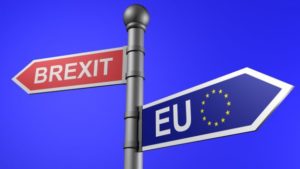Following the referendum held on Thursday, June 23, 2016 to decide whether the UK should leave or remain in the European Union, the entire world questioned what Britain’s exit from the EU would actually entail for British – and global – businesses. While there are many moving parts still up in the air, one thing is certain: Britain will have to reach a new trade agreement with the European Union. This task will be highly complex and be carried out under the immense pressure of a two-year deadline.
Once the United Kingdom’s formal decision to leave the European Union was notified to the European council of EU leaders, under article 50 of the Libson treaty, the UK was given a formal notice of leave from the EU. Article 50 demands a two-year timeframe for the UK to renegotiate a new legal basis for trade relationships with the remainder of the EU (however, it does enable an extension if needed).
The trade discussions must consider the framework for exporting and importing goods, like food and cars, two very important imports and exports for the UK, and the basis for continued services trade, such as legal advice on a big company takeover to and from the EU. Britain’s trade negotiations also must ponder changes to customs procedures, passport controls for business travel, and regulation on safety standards, health and environmental issues.
All the aforementioned decisions, however, are contingent upon whether or not Britain undergoes a “hard” or “soft” Brexit, said BBC News. Hard and soft are terms that were used increasingly in debates focused on the circumstances of the UK’s departure from the EU. While there is no concrete definition for either term, they are commonly used to refer to the closeness of the UK’s continued relationship with the EU following Brexit. On one end of the spectrum, a “hard” Brexit would entail the UK refusing to comprise on issues like the free movement of people, even if it meant leaving the single market. On the other extreme, a “soft” Brexit would more closely resemble Norway, which holds a single market (as opposed to a common market with free trade) and is forced to accept the free movement of people as a result.
According to The Guardian, it will be challenging for the UK to pull off a trade deal in a meager two years, particularly if the option of joining the European Economic Area (EEA) is pursued, but the British government is hesitant to accept any freedom of movement as a quid pro quo.
While the entire idea behind Brexit is to instill change within the British government and trade policies, John Forrest, the head of internal trade at DLA Piper law firm told The Guardian, he did not think having the UK continue carrying on trading with the EU under the same free movement principles is out of the question. “…that means freedom of movement for goods, people and capital between the UK and EU will continue to operate.” For the millions of people who campaigned and voted for leaving the EU on that Thursday in June of 2016, this possibility will be a tough pill to swallow.

Leave a Reply
You must be logged in to post a comment.